‘Ralph Breaks The Internet’ Filmmakers Explain the Sequel’s Un-Disney World; Rich Moore Remembers Creating Ned Flanders
A few weeks ago, I sat down with directors Phil Johnston and Rich Moore, alongside producer Clark Spencer, to discuss their latest film Ralph Breaks the Internet. We talked about what made this worthy of being a rare Disney animated sequel and the evolution of the story through development; Johnston told us what’s going on with Reply All and Phantom Tollbooth; we discussed how Moore helped create Ned Flanders on The Simpsons; and the inspiration of Slaughter Race, the unlikely possibility of a theme park land based on this new creation, and much more.
Ralph Breaks The Internet Interview
Disney Animation doesn’t make many sequels theatrically.
Moore: And now we know why.
What do you think made Ralph Breaks the Internet worthy of a rare Disney theatrical animated feature?
Johnston: I think the characters and the story we still had to tell with these characters. And the fact that as Rich said in the news conference that at the end of the first film, we didn’t feel like Ralph was really whole. He still had self-doubt and insecurity and a lot of anxiety and Vanellope was a character whose story was just beginning. She had, Ralph has a maturation story still to tell. And one of self-discovery. And Vanellope really still had a coming of age story to find herself. And, I mean, we could have left it where it was, but we –
Moore: I would have tossed and turned all night though.
Johnston: Yeah.
Moore: Knowing that he was still kind of out there. Defining himself by Vanellope’s opinions. So…
At a previous press day, I think I talked to you guys about the earliest version of the script which had Vanellope getting sucked into the Internet in some way. She, like, started Vanellope.com. Can you talk about the evolution of from that to the final theatrical version?
Moore: I’m trying to think what was the link between…
Johnston: Yeah. The thing with that one was she became susceptible to Internet fame and the idea of superficial love. Like and the reason we veered from that is because it didn’t feel like something Vanellope would do. And the audience was way ahead of it. Like we know that’s a bad idea. And why are we then rooting for it? We’re just waiting for her to discover that that’s a bad idea.
Moore: For it to fall apart. Yeah.
Johnston: This version of the film was more about a friendship that on paper is wonderful and perfect and these two people seem to have everything together. And then one gets a different idea of what she wants her life to be and how does the other respond to that? And it felt like a more universal story of the way friendships actually are. And relationships are. Where we all have fights, we all have different ideas of what we want our lives to be and it’s how we adapt to that as friends or as partners that kind of determines whether the friendship is going to survive or not.
Phil, you wrote a script called Reply All which kind of used the Internet as an inciting incident in some ways, right?
Johnston: Oh yeah. Yeah. I forgot about that script.
Moore: You forgot about it? Better get on that.
Johnston: It’s pretty good.
What is going on with that and what is going on with Phantom Tollbooth?
Johnston: Oh. Well, Reply All was something I wrote with Zach Galifianakis about eight years ago or something.
Oh wow, long time.
Johnston: Where his character on the eve of his wedding accidentally replied all and insulted every single person in his wife’s family and the priest…it was bad. I don’t know what –
That’s a brilliant idea.
Johnston: It is, isn’t it? We should make that.
I’m sorry to derail…
Moore: Ralph replies to everyone in the arcade, to the entire Internet.
Johnston: Yeah. Phantom Tollbooth, I just did a rewrite on it a couple years ago. I don’t know what they’re doing with that.
You don’t know what’s going on with that. Rich, I never talked to you about this, but according to IMDb, you were the one who designed Ned Flanders. Is that true?
Moore: Well there’s, I was the first person to storyboard him in The Simpsons Christmas, the original Christmas episode from ’89. And I was the one who kind of drew him with the mustache and glasses and like the combed back hair. And it was a little thumbnail. And then it was a guy, Phil Ortiz, who was one of the character designers on the show, that took my thumbnails and kind of fleshed it out into the character model. So I guess I’m the first person to draw him.
Johnston: Congrats, I didn’t know that. That is cool.
That is so cool. Is that thumbnail online anywhere?
Johnston: Do you have it? Can I buy it?
Moore: I got tons of those storyboards that are in a box somewhere in storage, but yeah, it was…
Johnston: You need to sell those.
That’s television history.
Moore: It is.
Johnston: Yeah, amazing.
Moore: I keep all that stuff, so…
Johnston: That’s cool.
Moore: He’s kind of like the culmination of all these people I knew at Oxnard First Baptist Church when I was a kid.
That’s awesome. Can you talk about the conception of Slaughter Race and was that inspired by like Grand Theft Auto and…?
Moore: Grand Theft Auto and I love the Saints Row games. Just a kind of hyper realistic but lawless kind of cartoonishly violent type of world. And it’s another one of these cases of you can’t judge a book by its cover. And there were a lot of people on the staff that at first were like my God, this is where Vanellope’s gonna end up? Like in this kind of world. Is that really – ?
I will say this, that I’m shocked that Disney, I mean, a lot of people are shocked with Disney and the Princess scene, but to me, I’m like oh no, that makes sense. I’m shocked that they would let Vanellope end up in Slaughter Race.
Moore: Yeah. But that just kind of speaks to the story and as we kind of went through it, it’s where you just have to kind of believe like, “No, this will work. This will work. Maybe it doesn’t make perfect sense right now. And we still have more to grind on here.” But with every kind of step of the way you would lose people that were kind of like, “Well, I don’t feel good about Vanellope staying there.” And then suddenly Gal Gadot is playing Shank. And it’s like “Oh, well I feel a little bit better about Vanellope staying there. She seems pretty cool and wise.” But there’s still a few that are still worried about it. And then suddenly there’s a song. A Princess song that takes place in Slaughter Race. And by the point that we got there, by the time we got to that point, everyone who was a little concerned was like, “I love her in Slaughter Race. It’s perfect. This is the perfect fit for Vanellope.” So it really is sometimes a case of like we’re the ones that the kind of can see what’s at the end even though you can’t communicate exactly how you’re going to get there. But you just know as you’re kind of going through the process of it, we’re gonna get there. And I can’t tell you exactly how it’s going to make everything love it, but you gotta trust us that by the end of the line, everyone is gonna believe like that is the perfect fit for her and I want her to be there. And Slaughter Race was definitely one that people kind of had to take on faith that we would get there.
I know with Zootopia, everybody left that loving that world. I mean, like I could totally see Disney making a theme park land off of that.
Moore: Yeah, Slaughter Race Land might be tough.
I can’t imagine Slaughter Race.
Moore: Well you never know. It’s like…
Johnston: I compare it to when I moved to New York City. Like from Wisconsin. And my folks and a lot of my friends sort of looked at Brooklyn back then as this is ugly. This is weird. This is scary.
A scary place.
Johnston: And there’s graffiti and whatever. But then I got into my building and there’s a nice Italian guy that lives upstairs, Gus, who then my folks became friends with. And the guy next door. We’re just people. And so it was similar to the first movie where Ralph is a bad guy and he’s defined by that label. But really he’s a good guy. And just as Slaughter Race and Shank and that whole crew are good people even though their world looks a little sketchy.
Moore: And there was a friend up at Pixar who when we screened the movie up there he kind of afterwards took me aside and he was like, “I don’t what you guys are, is that gonna work?” I mean as a very early iteration. And it’s like well it’s kind of, it’s in a way saying like our kids grow up. Because he has kids too. And I’m like our kids grow up and they’re going to move to areas sometimes that we don’t understand or that they love and we don’t see what exactly it is. He’s like, “Well, I think I know what you’re talking about.” It’s like, think about when you went to Cal Arts and you got there, the naked swimming pool, the weirdoes like roaming the halls and everything. What did your parents think of that when you got there? And they’re like, “Oh my God,” they were so terrified. What did you think of it? I loved it. And it’s like that is exactly what it is that we’re going for here. And then he was like, “I get it now. I see what you’re trying to do.”
***
Ralph Breaks the Internet hits theaters tonight.
The post ‘Ralph Breaks The Internet’ Filmmakers Explain the Sequel’s Un-Disney World; Rich Moore Remembers Creating Ned Flanders appeared first on /Film.
from /Film https://ift.tt/2OWyeC6
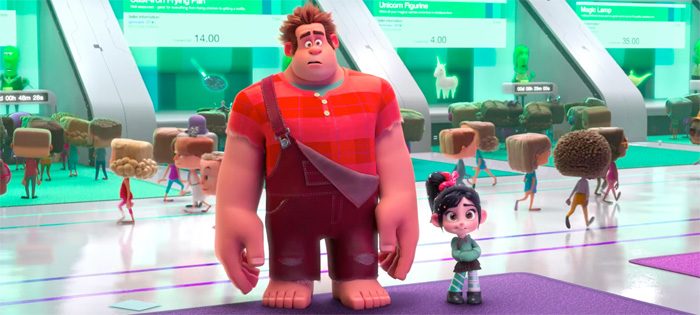
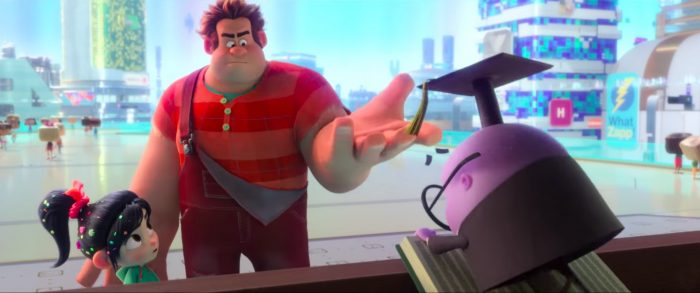
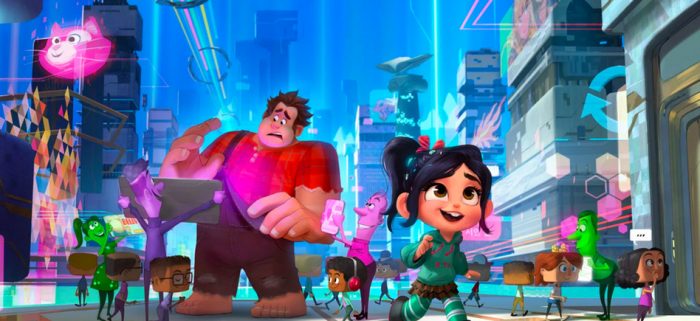
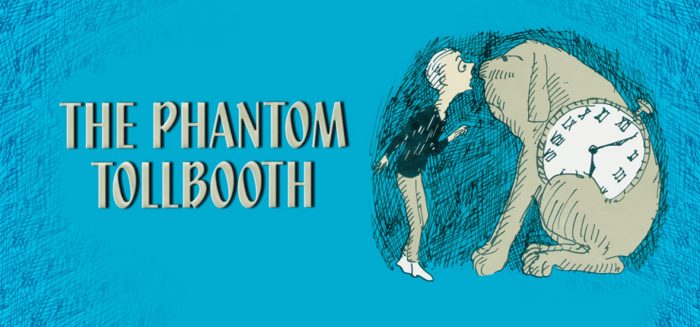
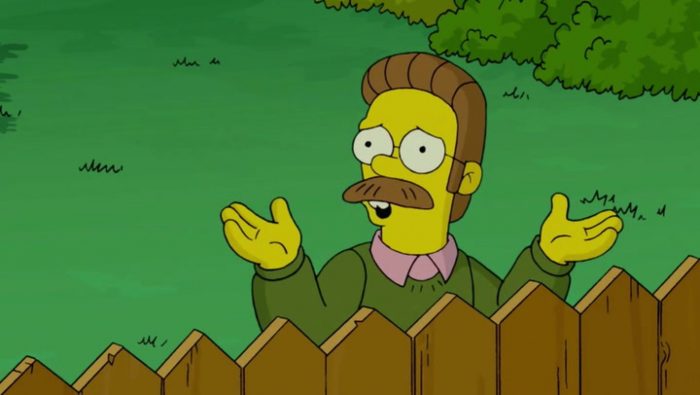
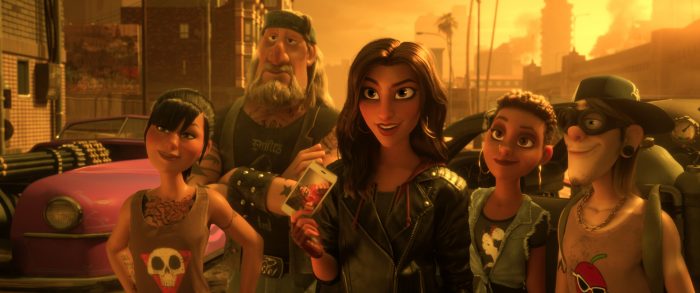
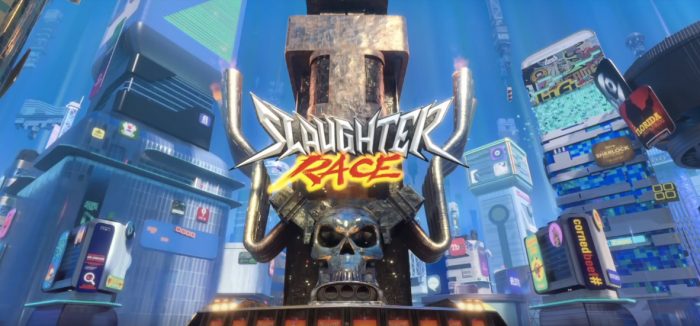
No comments: